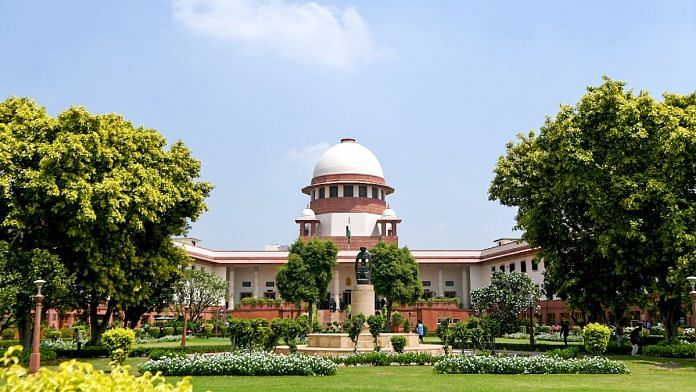Thank you dear subscribers, we are overwhelmed with your response.
Over the last few years, the world has witnessed a gradual but persistent attempt by the State to limit the power and scope of the judiciary. A trend that caught the attention of the world during the Trump administration’s practice of judicial resistance has found itself in different shapes and forms in countries like Brazil, India, and, recently, Israel. On July 24th, Israel’s far-right government successfully passed a key element of its elaborate plan to bring judicial reform. After several months of debate, the government on Monday managed to scrap the ‘reasonableness’ clause that allows the Supreme Court to overrule government’s policies that contradict the fundamental tenants of the constitution.
The ‘reasonableness’ clause is analogous to the judicial review exercised by the Apex court of India and United States, constitute a fundamental tenant of judicial independence. Judicial review is a tool to limit the unregulated power of the executive, struck down discriminatory laws, preserve constitutional rights, and maintain sanctity of the constitution. Abolition of judicial review could rob the citizens from recourse to legal remedy, undermine institutional checks and balances, and establish legislative supremacy. Liberal constitutional democratic order, which gradually shaped the world order 18th century onwards, foregrounds itself on institutional arrangements that legitimize the independent existence of the three fundamental pillars of the state: the legislature, the executive, and the judiciary. Historically, however, this coexistence has witnessed numerous skirmishes, especially on two fronts: first, there are multiple attempts by the State to undermine the power and authority of the judicature. Second, although the executive and the legislature is deemed to exist independently, the executive inadvertently turned into a political executive.
In Brazil, former populist president Jair Bolsonaro, persistently undermined the rule of law and constitutional institutions. The constitutional amendment in November 2021 that reduced the retirement age of the ministers of the higher judiciary from 75 to 70 widened the scope of further nomination for the Bolsonaro administration to the Federal Supreme Court. Earlier in 2020, Bolsonaro had successfully nominated Kassio Nunes Marques, who won support from the so-called ‘centrao’ bloc of the lawmakers that Bolsonaro relied on while facing legislative setbacks in Congress. The 2021 amendment resulted in Bolsonaro’s second nomination to the Supreme Court, Andre Mendonca, a conservative ally of Bolsonaro. Although the appointment, which Evangelicals and other conservative Christians pushed, did not signify a fundamental change in the judicial machinery, however, marked the beginning of a new political tilt towards Right within the institution.
Another glimpse of institutional resistance was caught in November 2022. Three weeks after losing a tightly contested election to rival Luiz Inacio Lula da Silva, Bolsonaro challenged the election in Brazil’s top electoral court, TSE, seeking ‘extraordinary verification’ of the electoral results. Although the Court rejected the plea of the outgoing president, what followed was a nationwide movement seeking to overturn the presidential election defeat and thousands of Bolsonaro’s supporters invading government buildings in Brasilia. The event resembled the 2020 U.S. election, the results of which were challenged by former president Donald Trump in the Federal Court with claims of fraud and corruption by the Democrats.
In India, in 2015, the Supreme Court struck down the 99th constitutional amendment passed by the Parliament in 2014 that established National Judicial Appointment Commission(NJAC). NJAC was a Judicial appointment body to replace the existent Collegium system to increase the role of the political executive in appointing the higher judiciary. The Court struck the act for undermining the judiciary’s institutional independence and thus obstructing the constitution’s basic credentials. Notwithstanding the Court’s decision, there has been a persistent effort by the incumbent government, to repeal the current system of appointment. The overwhelming argument by the ruling government has been the legitimacy of elected representatives over appointed judges in a representative democracy. In addition, a narrative of judicial supremacy is frequently propagated to delegitimize the judiciary’s institutional integrity further.
In the face of rising backlash to ‘liberal democracies’ worldwide, efforts to curb judicial power could take two shapes: ‘packing’ or ‘curbing’ the courts. Strong political executives aspire to pack the judicial forum with allies aiming to absorb the judicature. The U.S. Federal Court witnessed a similar reshuffling during the Trump administration. Another way of delegitimizing judicial bodies is to resist or curb the judicial power and its constitutionally granted authority. The recent incidents of judicial undermining in India and Israel could be precisely viewed from this perspective. The liberal constitutional democratic order that presented to us an unique recipe of the modern State, institutional checks and balances, and rule of law is purported to be overtaken by the two fears of democratic politics: first, democracy knows of no effective way to establish authority, and second, in the absence of which license of liberty is used to turn democracy to tyranny of the majority- a fear expressed variously by different thinkers from time to time. What prevents a democratic government from becoming tyrannical under the liberal constitutional framework is the institutional arrangement where the key institutions of the state play equal, independent, and complimentary roles in a rule base international order. However, when this institutional arrangement begins to crumble under the guise of majoritarian politics, the ethos of constitutionalism stands on shaky ground. The rising events of judicial overhaul should alarm us about the future of the judiciary as a crucial fulcrum of liberal constitutional democratic order.

